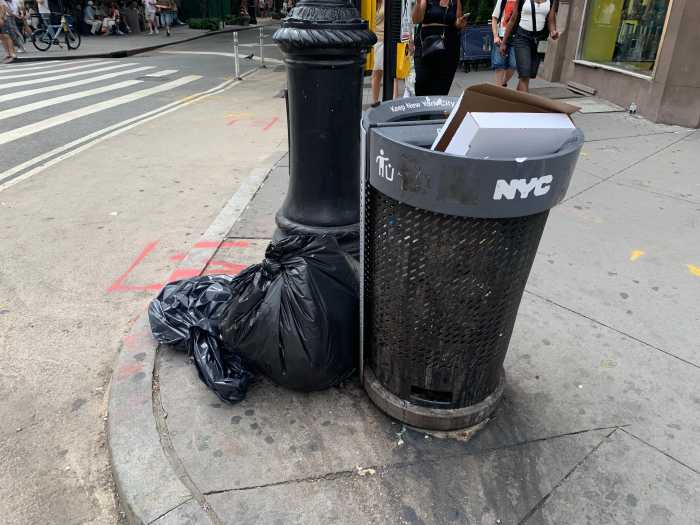
An epidemic of campus sexual assault is spreading across the country and shockingly, New York has more schools being investigated for possible violations of federal law over the handling of sexual violence and harassment complaints than any other state.
Thousands of college students are affected by sexual assault, domestic violence, dating violence and stalking each year. But what is often as damaging to victims as the crime itself is the practice by some college officials to try sweep reports of sexual assaults under the rug for fear the publicity will damage their institution’s reputation if law enforcement is called to investigate.
Instead, sexual assaults are often inappropriately treated as campus disciplinary problems with minimal consequences for an offender. According to a 2010 investigation by the Center for Public Integrity, only 10 percent to 25 percent of students found “responsible” for sexual assault were permanently kicked off campus. But sexual assaults are not simply violations of campus rules, these are crimes and they need to be treated as such.
Today, fewer than 5 percent of the rapes of college women are reported to law enforcement. And, according to the Bureau of Justice Statistics, only 16 percent of female student victims of rape and sexual assault received assistance from a victim services agency.
Campus investigations are woefully limited, staff training and resources are inadequate, and policies and protocols are lacking. If the police aren’t engaged, and the victims’ services groups aren’t engaged, then who is helping the victims, and getting these perpetrators off our campuses? As a state, we must do better.
While campus sexual assault is not New York’s problem alone, it is a problem New York can help to solve. And as New York has done so often, we can help turn the tide on a national issue that many still don’t want to acknowledge even exists.
We’re already taking action in New York. We worked with leaders at the State University of New York and outside experts to develop a SUNY-wide policy that we now want to extend through legislation to every college and university in the state. We are calling our effort “Enough is Enough” because that is exactly what we mean.
Modeled on SUNY’s program, the legislation would require all colleges and universities in New York, public and private, to implement uniform prevention and response policies and procedures relating to sexual and interpersonal violence, including sexual assault, domestic violence, dating violence, and stalking.
We’re calling this proposed law “Enough is Enough” because that is exactly what we mean. This is about justice and fairness.
The measure says that when a student reports to campus officials that they have been sexually assaulted, they are to be informed of their rights and the resources available to them. Students must be told they have the right to report the attack to police. While that may seem obvious, many of the cases are now handled by campus security. And the orientation of campus security, which works for the college administration, is often to deal with the issue internally so it doesn’t become public and tarnish a university’s reputation.
This law would create a statewide definition of affirmative consent defining consent as a clear, unambiguous, and voluntary agreement between the participants to engage in specific sexual activity. We need a uniform definition of affirmative consent, so that when complaints are made, there is a standard against which to judge them.
“Enough is Enough” also takes the following steps:
A statewide amnesty policy to ensure that students reporting incidents of sexual assault or other sexual violence are granted immunity for certain campus policy violations, such as drug and alcohol use.
A Sexual Violence Victim/Survivor Bill of Rights that would be distributed to all students to specifically inform sexual violence victims of their legal rights and how they may access appropriate resources.
Training requirements for administrators, staff, and students including at student orientations, notifying students about rights and resources available to them and how the university will respond to reports of sexual assault, domestic violence, dating violence and stalking.
Campus climate assessments informed by at least bi-annual anonymous student surveys with results published online.
Options for confidential disclosure and privacy in legal challenges to conduct filings, including plain language notification to students about confidentiality and privacy laws, and a list of confidential resources available to students.
We have the support of several private institutions, including Syracuse University, which has adopted a similar policy, but will adopt “Enough is Enough” once it becomes law.
But some private colleges have argued that they are too diverse in size, scope and composition to be subject to a one-size-fits-all policy. They should note that we already have implemented these policies at SUNY, which serves more than 463,000 students. It works for the most diverse system in the country and therefore it will work for other colleges, too.
“Enough is Enough” would ensure that each student at every college in New York has the same, advanced protections that SUNY adopted last year. I offer this legislation both as governor and as a father sending three girls — two in college and one on the way — out into the world to educate themselves. It’s personal for me and it should be personal for all of us.
If passed by the State Legislature, this would be the toughest law on campus sexual assault in the nation. I am very proud of that distinction because we will be protecting our students in our state better than any other state. But I believe other states would follow, because if we can change the conversation around campus sexual assault in New York, we can change it across the nation.





































